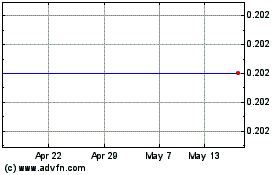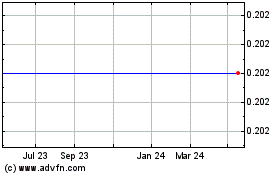LONDON—Sable Mining Africa Ltd. made payments to government
officials in West Africa in 2010 before winning lucrative mineral
concessions, according to documents reviewed and interviews
conducted by The Wall Street Journal.
Separately, investigative nonprofit Global Witness, in a report
released Wednesday and reviewed by the Journal, says its
investigation shows Sable made payments to government officials and
people close to the government in Liberia and Guinea, hoping to get
favorable decisions for mining deals. Sable, which is registered in
the British Virgin Islands, owns mining rights to a plot of land in
Guinea it says is rich in iron ore, and has secured the right to
export it through Liberia.
Independent of the Global Witness report, the Journal reviewed a
trove of emails and internal Sable documents that showed company
officials detailing payments to government officials. Heine van
Niekerk, a former Sable executive, said in a 2015 interview with
the Journal that he made payments to Liberian and Guinean officials
in 2010 for what he described as standard business deals or
political donations.
Sable denied wrongdoing in a written response to questions from
the Journal. The company says there are no links between payments
it made in Guinea and Liberia in 2010 and rights later granted by
the two countries.
The company in its response to Global Witness said a 2011
internal review of its Liberian operations highlighted a "lack of
controls" regarding the use of certain funds. The company
"augmented internal procedures and controls" in response. Mr. van
Niekerk no longer works for Sable following a business dispute with
Sable executives which was detailed in documents in a South African
court case about the dispute.
Sable Chairman Jim Cochrane said in a statement to the Journal
that a recent review of the allegations of payments to African
officials "found no evidence to support or justify this attack on
the company or its directors, past and present."
Sable is one of multiple Africa-focused natural-resource outfits
floated by businessmen Philippe-Henri Edmonds and Andrew Groves on
the London Stock Exchange's market for small companies, the
Alternative Investment Market. Mr. Edmonds gained fame in the U.K.
in the 1980s as a cricket player and then went on to make a fortune
pursuing minerals in far-flung places, the Journal has
reported.
Messrs. Edmonds and Groves denied wrongdoing through a Sable
press representative. Mr. Edmonds was replaced by Mr. Cochrane in
2014 and is no longer with the company. Mr. Groves is chief
executive.
Native Africans, Messrs. Edmonds and Groves have been doing
business in West Africa for more than a decade.
Liberia is ranked 83rd out of 168 countries in Transparency
International's Corruption Perceptions Index, in which a No. 1
ranking is the cleanest, and Guinea is ranked 139th.
The businessmen's most recent venture is Sable Mining,
originally listed in London in 2008 as Bioenergy Africa Ltd., which
said it would make ethanol from sugar cane. The company was renamed
Sable in 2009 as it turned its focus toward minerals such as iron
ore, then a hot commodity amid seemingly endless appetite in China
for the steelmaking ingredient.
Early investors included natural-resource funds owned by J.P.
Morgan Asset Management. By 2014, J.P. Morgan funds had accumulated
a 7% stake, making it the company's biggest institutional investor,
according to FactSet. J.P. Morgan didn't have an active governing
role in Sable, said a person familiar with Sable. The person said
Sable's board touted the bank's backing as a reason to feel
confident about the miner's fortunes, hoping to encourage more
investments. A J.P. Morgan representative declined to comment.
Other investors have included Fidelity Investments and New York
hedge fund Harbinger Capital Partners, neither of which now own
shares of Sable, according to representatives of those firms. A
Harbinger spokesman said the firm was a Sable investor from 2009 to
2010, when it sold its stake at a loss. A Fidelity representative
declined to comment further.
In 2012, Sable won rights to explore an iron-rich plot of land
in Guinea, near the Liberian border, following a hotly contested
presidential race. The candidate they supported, Alpha Conde,
emails show, had won the election in 2010 and promised to reform
the country's mining industry.
A key ally was Aboubacar Sampil, a Guinean businessman and close
friend of Mr. Conde's son, according to people familiar with the
relationship. Mr. Sampil helped the company gain access to the
president and other government officials by arranging meetings and
plane trips, according to Sable emails viewed by the Journal.
"[D]o not forget the budget for the people who are working for
us here," read an email sent from Mr. Sampil's account on Aug. 18,
2010, to Mr. van Niekerk, then a Sable executive. The email asked
Mr. van Niekerk to transfer cash to a bank account owned by Mr.
Conde's son "so I can be more confortable [sic] with the
technicians of the ministry of mines."
It was one of several emails from Mr. Sampil's account viewed by
the Journal that asked for cash to be transferred to Mr. Conde's
son. Mr. Sampil was named a Sable board member in 2012.
Mr. Groves, in an Aug. 18, 2010, email viewed by the Journal,
wrote to Mr. van Niekerk: "Alpha Conde paid," referring to Mr.
Conde's son, whose name is Alpha Mohamed Conde. A Sable
representative confirmed the payment and said it was for services
Mr. Conde's son provided to Sable before the election campaign.
Sable said Mr. Sampil denied wrongdoing. Efforts to reach him
independently were unsuccessful.
A spokesman for the Guinean government said President Conde
didn't provide any favors to Sable Mining. "Any suggestion that
Alpha Conde, while a candidate for office, received payments from
Sable in connection with some express or implied promise to support
Sable's acquisition of business in Guinea, is absolutely false,"
the spokesman said. Through a spokesman, Mr. Conde's son said: "I
categorically reject all of these insinuations and claims."
Sable also won rights to export its iron ore over Guinea's
Liberian border, a right denied to other mining companies in
Guinea, which was pressing other bigger miners like Rio Tinto PLC
to help fund rail links to a port. Guinea mining officials have
said they are open to granting rights to ship over the Liberian
border to small operators such as Sable, which couldn't afford a
rail link.
In addition, in Liberia, Sable made multiple payments earmarked
for government officials, Global Witness alleges, citing documents
including a spreadsheet from Sable's Liberian law firm that has
been seen by the Journal and that indicates debits to accounts
corresponding with the payments. In early 2015, Sable won the right
to transport iron ore over a rail line in Liberia, news that shot
its stock up more than 300% in a day. The law firm didn't reply to
a request for comment.
Sable in its response to questions from Global Witness about the
Liberian payments said "if any inappropriate actions were taken,
they were taken without the knowledge of the board."
Eugene Lenn Nagbe, Liberia's minister of information, culture
and tourism, said in an interview with the Journal: "If there is
any indication that any Liberian official or citizen is involved in
violations of the law through bribery and corruption, the
government of Liberia will not hesitate to investigate." He said
several steps remain before Sable officially gets access to the
rail line.
Despite its efforts, Sable still hasn't started mining its
Guinean concession, and its shares have collapsed amid the tumbling
price of iron ore, shedding more than 95% of their listing
price.
Write to Scott Patterson at scott.patterson@wsj.com
(END) Dow Jones Newswires
May 11, 2016 16:35 ET (20:35 GMT)
Copyright (c) 2016 Dow Jones & Company, Inc.
Sable Mining (LSE:SBLM)
Historical Stock Chart
From Dec 2024 to Jan 2025

Sable Mining (LSE:SBLM)
Historical Stock Chart
From Jan 2024 to Jan 2025
